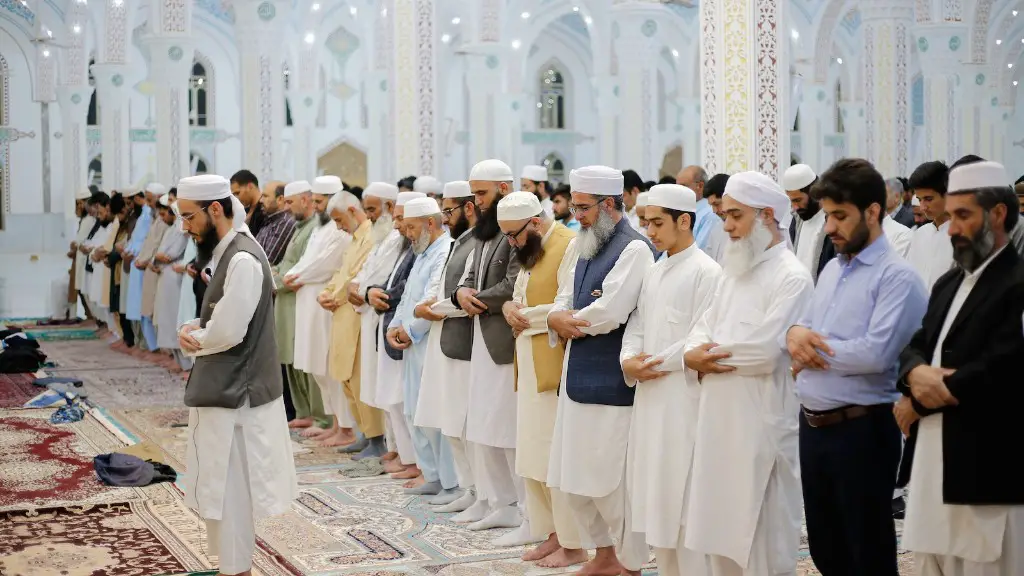Religious Perspectives on Afterlife
Most major religions, including Judaism, posit an afterlife for the deceased. According to Jewish belief, the soul of the dead person is unaware of its corporeal demise and continues to exist in the World to Come. This view is confirmed by numerous verses in the Hebrew Bible, such as Daniel 12:2: “Many of those who sleep in the dust of the ground will awake, some to everlasting life and some to shame and everlasting contempt.”
In the Tanakh (the Hebrew Bible), the term Sheol is used to refer to the afterlife, commonly translated as “the pit” or “the grave”. This word appears in passages that indicate that the righteous dead, at least, are conscious after death. For example, Proverbs 15:24 states, “The path of life leads to the abode of the dead.”
Jewish tradition is that death is a gradual process, not a sudden departure from life. When the soul departs from the physical body, the soul is still within a physical structure in the World to Come. This structure is known as a Chupa, a “canopy of souls.” Once the soul enters the Chupa, it becomes eternally conscious, although it is not capable of self-expression.
The Talmud states that the soul occupies the space between the eyes, while most other souls are presumed to have departed with their bodies. While the body is decaying, the soul will wander, ascending and descending in search of its final resting place in the World to Come. However, it is believed that there are some souls which do not return to their body, such as the souls of the wicked. They are believed to descend to Gehenna, a place of punishment and suffering.
The Talmud holds that the righteous are motivated to live a good life on earth in order to be rewarded in the afterlife, and that the wicked are motivated to avoid sin in order to avoid punishment in the afterlife. In order to understand the personalities and moral statuses of individuals after death, one must consider the condition of their souls at the time of their death. Since the soul is immortal and the body is not, it is the soul that determines a person’s fate in the afterlife.
Revival of the Dead and the Messianic Age
According to Jewish belief, the dead will be resurrected in the Messianic Age, when the Messiah unfolds his plan to save the world. The Talmud (Sanhedryn 92) states that during the Messianic Age, the righteous dead will rise from the grave and will again enjoy life with the living. The wicked will also be raised, so that the Messiah can bring final judgment and reward or punishment.
The resurrection of the dead is seen as an event of ultimate redemption and restoration, when the world will experience perfect peace and justice and all matters that have been shrouded in mystery will be revealed. This will include full knowledge of the existence of God and His will, so that His laws will be obeyed and all suffering will cease.
The relationship between the resurrection of the dead and the Messianic Age has been a subject of debate for centuries. Jewish tradition holds that the resurrection of the dead is a sign of the coming of the Messiah. However, some modern thinkers reject this concept and believe that the resurrection of the dead is an event that will take place at the end of time, when all creatures will be subjected to judgment and the world will be at peace.
The Jewish tradition has much to say about what happens after death and how the dead will be resurrected in the Messianic Age. It is believed that the dead will be reunited with their bodies and that their souls will animate them once again. This reunification will take place in a transformed world that is able to provide justice and mercy to all its citizens. The resurrection of the dead will also be a sign of the ultimate redemption of the human race.
Concepts about Heaven and Hell
In Jewish teachings, the concept of Heaven and Hell are not clearly defined, but there are opinions about the afterlife based on what is written in the Tanakh and in the Talmud. According to the Bible, those who have sinned will be punished in a place called Gehenna, while those who have lived righteous lives will go to a place that is eternal, peaceful and blissful. This place has been variously described as Olam Habah (the “world to come”), Garden of Eden and Gan Eden (“Garden of Delight”).
The term “Sheol” is used in the Bible to describe the afterlife, but it can also refer to a place that both the righteous and wicked can inhabit. According to Jewish teachings, the wicked will go to a place of torment and punishment, and the righteous will go to a place of glory and bliss. Heaven and Hell are seen as two sides of the same realm, and each person will go to the place that best suits his or her individual merit.
Jewish teachings explicitly deny the existence of a physical Hell and downplay the importance of punishment in the afterlife. In the Talmud, it is believed that death is a temporary reprieve from a life of suffering and that the fate of the soul is determined not by punishment, but by the deeds done during life. In essence, Heaven is a reward that is dependant on good works and Hell is the ultimate punishment for evil deeds.
However, Jewish tradition also allows for the possibility of divine mercy and grace, which means that even those who have sinned can go to Heaven if God so chooses. The concept of Yom HaDin (“Day of Judgment”) states that a person’s ultimate reward or punishment will not be determined until the Day of Judgment, when his or her sins and good deeds will be carefully weighed against each other.
Jewish Eschatology and the Afterlife
The Talmud contains various teachings on afterlife and resurrection. According to traditional Jewish law, resurrection is a natural part of human mortality and will occur at the end of days when the Messiah comes to Earth. In addition, the Talmud states that the souls of the dead will come back to life when the dead are resurrected. Here, reincarnation is seen as an extension of resurrection, as the soul returns to the physical world to receive its reward or retribution.
At the end of days, the dead will rise from their graves, the wicked will be condemned, and the righteous will receive their reward. The Talmud standardly refers to this as the Day of Judgment and Resurrection (techiyat ha-metim) or the Day of Revelation (nevua). It is believed that this event marks the realization of all of the divine promises and will result in the establishment of a perfect world in which all people will live according to the laws of truth, justice and righteousness and will experience peace and tranquility.
Jewish eschatology also maintains that the dead will be reunited with their loved ones in the afterlife, so that families may be reunited. Furthermore, physical pleasures which were denied in life will be made available in the afterlife. This includes activities such as eating, drinking and sex. However, the purpose of these activities is not self-gratification, but rather to demonstrate the greatness and glory of God.
Purpose of Life and the Afterlife
The purpose of life and the afterlife are closely connected in Judaism. The Talmud teaches that our purpose in life is to be subservient to God and to serve Him. We are expected to fulfill His commandments and live according to His laws. In doing so, we will achieve eternal reward in the afterlife. Those who fail to fulfill their goal in life will be punished in the afterlife.
The concept of reward and punishment is deeply embedded in Jewish teachings and forms the basis of many of its beliefs about the afterlife. According to this view, the fate of the soul is determined according to its actions in life. This means that a person’s actions in this world will determine the kind of reward or punishment that he or she will receive in the afterlife. Additionally, these rewards and punishments can also be seen as a kind of redemption and purification of the soul.
In Jewish teaching, the afterlife is seen as an extension of life on Earth. It is believed that the soul will be reunited with the body and will once again experience the pleasures that were denied in life. However, these pleasures are not to be enjoyed selfishly, but are seen as a way to demonstrate God’s greatness, mercy and justice. Furthermore, the afterlife serves as a means of providing reward and punishment, so that all people can experience justice and peace.
The Final Judgment
In Jewish belief, the dead will be judged after their resurrection in accordance with their deeds in life. This is referred to as the Final Judgment and is seen as the ultimate fulfillment of divine justice. The Talmud states that on the Day of Judgment all of humanity will be judged for their actions, and that their rewards and punishments will be determined accordingly.
The judgment process will involve the weighing of a person’s good and bad deeds and the making of a final determination as to the quality of their soul. Those who were righteous will receive their reward, while those who were wicked will receive their punishment. It is believed that the punishment of the wicked will be eternal and that they will be sent to a place of suffering, while the reward of the righteous will be eternal and they will go to a place of bliss.
The purpose of the Final Judgment is to restore justice in the world. By making a final determination as to the quality of a person’s soul, God will ensure that those who have done well will be rewarded, while those who have done evil will be punished. Ultimately, the Final Judgment is seen as the perfect fulfillment of justice and an assurance that the world will be at peace.
Summary
Judaism believes in an afterlife for the dead, with a distinction between the righteous and the wicked. According to Jewish tradition, the ultimate reward of the righteous and the ultimate punishment of the wicked will occur in the Messianic Age, when the dead will be resurrected. The Talmud states that the fate of the soul is determined not by punishment, but by the quality of its deeds in life, and Heaven and Hell are seen as two sides of the same realm. The purpose of life is to serve God and fulfill his commandments, and in doing so, one will achieve eternal reward in the afterlife. Finally, the Final Judgment will involve the weighing of a person’s actions and the making of a final determination as to the quality of their soul.





